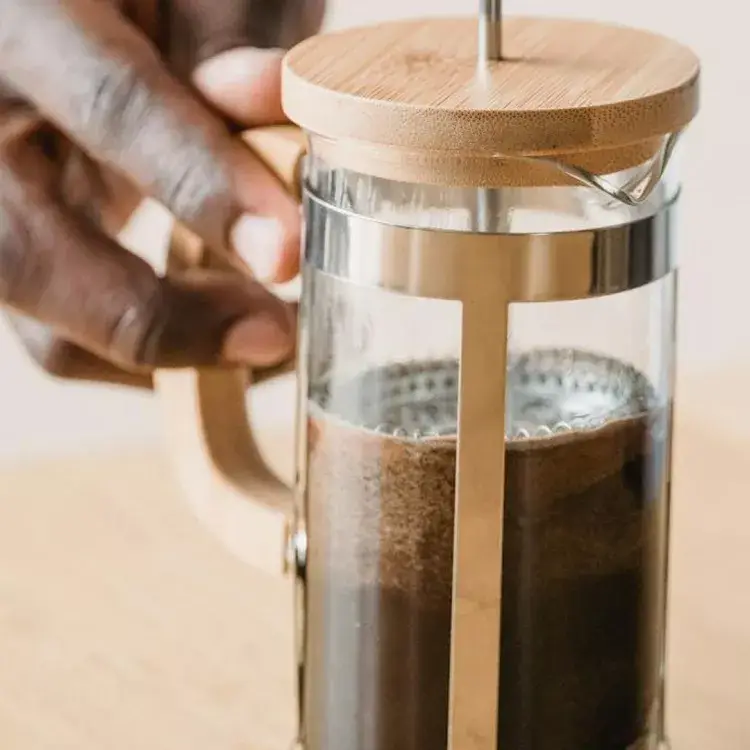What you need to know about caffeine and its effects on the body
Have you ever wondered why the world seems to brighten up after a cup of coffee? It’s all thanks to caffeine, a natural “alarm clock” for the brain. It can be found not only in coffee, but also in tea, chocolate, and energy drinks. Caffeine blocks fatigue signals, giving you a short-term boost of energy. For adults, this can mean better concentration and mood, but for children, such an energy surge is not always safe and can lead to overexcitement, insomnia, and affect heart rate. A child’s body reacts to caffeine more strongly than an adult’s, so it’s extremely important to limit coffee consumption to avoid sleep disturbances, increased anxiety, heart palpitations, and other negative health effects.
Effects on the child’s body
Children’s energy is already booming without caffeine, but when caffeine comes into play, the situation becomes more complicated. The body is still developing, and the metabolism of caffeine is slower than in adults. This means that agitation, high blood pressure, or heart palpitations can last longer. The nervous system becomes excited, which causes mood swings, anxiety, and sleep problems. Excessive consumption can even affect growth and overall development. Caffeine is not a poison, but it is not good for children. Drinking caffeinated beverages should be done with caution starting in adolescence.
At what age can you drink coffee
Pediatricians are unanimous: it is strictly forbidden for children under 5 to drink coffee. In kids, caffeine can cause agitation, sleep disturbances, heart and digestive problems. At the age of 6-12, no more than 45 mg of caffeine per day is allowed. This is about a cup of cocoa or a few pieces of chocolate. But adolescents from the age of 13 can occasionally drink coffee, up to 100 ml per day, but weak and only if they have a good diet and sleep. Remember: a child’s body is sensitive, and a coffee drink can have a far from childlike effect.
Coffee through the eyes of doctors
Experts are unanimous: children should not drink coffee.
Pediatricians in Canada, the United States, and Europe advise avoiding caffeine until the age of 12. According to the American Academy of Pediatrics, caffeine can cause anxiety, insomnia, high blood pressure, and even impaired brain development. Studies show that children’s bodies eliminate caffeine more slowly, so even small doses can cause adverse reactions.
Nutritionists add that caffeine reduces the absorption of calcium, which is essential for bone growth. Experts’ conclusion: caffeinated drinks are for adults. For children, it is better to replace coffee with cocoa and take care of a good night’s sleep.
Potential risks and negative impact on children
A coffee drink will give your child excessive energy and cause serious stress to the body. Caffeine can cause anxiety, irritability, headaches, insomnia, and even heart palpitations. In children, an overdose is manifested by nausea, trembling, sweating, and a sharp decrease in concentration. Regular consumption can affect the nervous system, slow growth, and disrupt calcium absorption. There is also evidence of the impact of caffeine on the formation of addiction in the future. The conclusion is simple: the child’s body is not ready for such stress. It is better to maintain energy in a natural way: through good sleep, a balanced diet, and regular physical activity.

Features of different types of coffee drinks for children
Cappuccino, latte, 3-in-1 or instant coffee – all these drinks seem easy, but they are dangerous for children’s bodies. Instant and 3-in-1s often contain more sugar, artificial additives, and the same caffeine. Latte and cappuccino seem mild because they are diluted with milk, but they still contain a lot of caffeine. The least harmful of the coffee drinks will be the one with a minimum of coffee and a maximum of milk (for example, a weak latte without sugar), but it is not for kids either. In any case, it is better to choose alternatives for children: they can drink barley coffee, chicory, or cocoa.
Consumption of coffee drinks in adolescence
Teenagers are starting to reach for coffee because it’s fashionable, interesting, and adult. But the body of a child aged 10-15 is still developing, and caffeine can disrupt sleep, cause anxiety, increase blood pressure, and impair concentration. It also interferes with the absorption of calcium, which is critical during the period of active growth. Experts recommend no more than 100 mg of caffeine per day, which is one serving of coffee. And even then, not every day. Natural sources of energy are better: water, sleep, and a balanced diet. Coffee drinks are not prohibited, but they should not become a daily habit for a young body.
Safe alternatives
Chicory is an excellent alternative to coffee: it is aromatic, with a taste reminiscent of coffee, but without harmful stimulants.
Cocoa is another tasty and healthy option, rich in antioxidants and magnesium, which supports the nervous system.
Herbal teas, such as chamomile or mint, help to calm down and improve sleep.
Fruit infusions or compotes are bright and natural drinks that energize without caffeine.
By choosing alternatives, we give children the best – health and good mood.
Practical recommendations for parents
If your child wants coffee, don’t panic. Teenagers are attracted to what adults consume, so it’s important to explain rather than forbid.
From the age of 13, you can carefully introduce coffee into your child’s diet: ½ cup of a weak drink with milk, not every day and preferably before lunch. Avoid instant and 3-in-1 coffee due to its high sugar content and additives. Watch for reactions: agitation, irritability, insomnia, headaches are a signal to reduce or eliminate caffeine. Offer healthy alternatives, such as cocoa or chicory. The main thing is dialog, moderation and attention to the child’s well-being.

Answers to the most frequently asked questions
Can children drink coffee?
Under 12 years old is not advisable. Caffeine can cause anxiety, insomnia, and affect the development of the nervous system.
At what age can you drink coffee?
At the age of 13, in moderation (up to 100 mg of caffeine per day), preferably in the form of a latte.
What to do if children want coffee?
Explain the consequences, suggest alternatives: cocoa, chicory, herbal teas.
What are the symptoms of a caffeine overdose?
Nausea, agitation, headache, tremors, sleep disturbances.
Conclusions.
Coffee drinks are not prohibited, but they are not recommended for children due to possible negative effects on their bodies. At an early age (under 12), it is better to exclude it from the diet completely due to the sensitivity of the nervous system and the risk of side effects. Children can start drinking coffee at about 13 years of age, introducing it gradually, in the form of low-concentration coffee drinks, with milk and without sugar, no more than one serving per day. It is important to pay attention to the child’s well-being: insomnia, irritability, headaches.
Moderation, awareness and sincere conversation are the best things parents can give their children.






